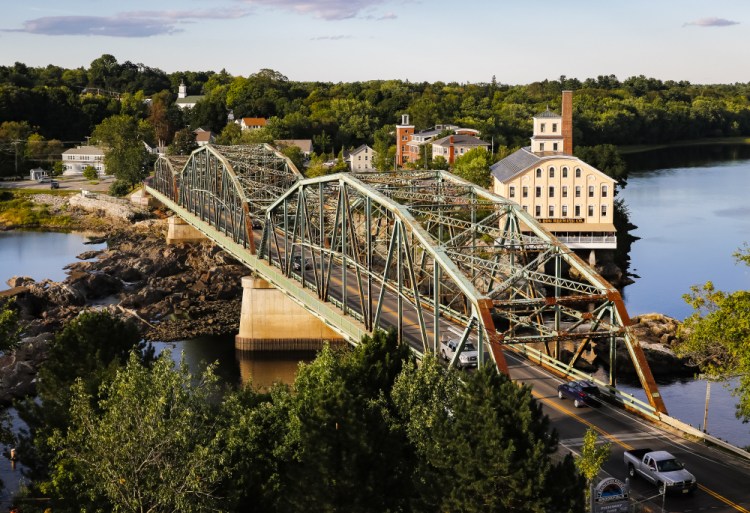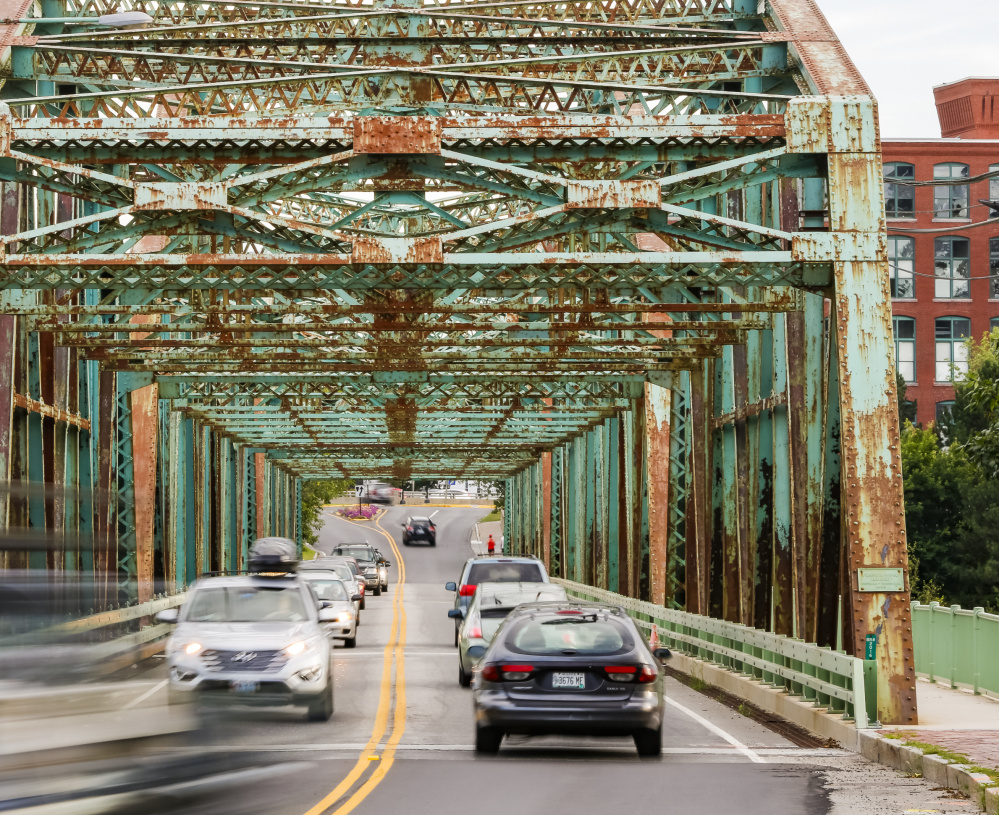Federal and state transportation authorities have spent several months evaluating alternatives for repairing or replacing the heavily traveled two-lane, steel-truss bridge that connects downtown Topsham with downtown Brunswick.
Next month, the Federal Highway Administration and Maine Department of Transportation will present to the public four options for fixing the 85-year-old Frank J. Wood Bridge, which is green but has patches of rust.
After spending several months reviewing the bridge project’s potential impact on historic properties – a federally mandated review – design engineers developed the four bridge replacement or improvement options, which range in cost from $13 million to $17 million.
But no matter which option is chosen, transportation officials recommend that the state soon invest an additional $800,000 on critical maintenance needs to extend the bridge’s life by five years.
A public meeting is scheduled for 6 p.m. on April 5 on the Brunswick campus of Southern Maine Community College. The campus is located at 29 Sewall St., on the former Brunswick Naval Air Station property.
A notice published by the Federal Highway Administration and MDOT says the agencies are seeking “additional general public and community input regarding all aspects of the project as they contemplate their selection of the preferred alternative.”
According to a summary of alternatives published on the MDOT’s website by T.Y. Lin International, a design and engineering firm in Falmouth, the bridge is a critical transportation link between Brunswick and Topsham, carrying about 19,000 vehicles each day.
There is also a sidewalk on one side of the bridge, which serves as a link for pedestrians to reach the Fort Andross mill complex on the Brunswick side and the Bowdoin Mill Complex on the Topsham side. Both mills house a number of shops, businesses and restaurants.
The Frank J. Wood Bridge, which is 805 feet long, opened in 1932. It was rehabilitated in 1985, 2006 and 2015.
T.Y Lin says in its report that the bridge is “fracture critical,” meaning it is vulnerable to collapse if certain components fail, such as the truss bars and floor beams. Detailed state inspections in 2012 and 2016 “found many deteriorated areas.”
T.Y. Lin also reported that load ratings done in 2013 and 2016 found “some floor system members are no longer adequate for Maine’s legal loads.”
The bridge is currently posted for a 25-ton limit.
While the state and federal design teams try to agree on a permanent solution, the MDOT plans to do temporary repairs to address the most severe problems so that the bridge can maintain its 25-ton load rating for another five years. The cost is estimated to be $805,000.
Two replacement options – which would keep the existing bridge alignment or create a new curved upstream alignment – would cost $16 million and $13 million, respectively. There are also two bridge repair options, which would cost $15 million or $17 million, with the more expensive alternative adding a second sidewalk on the eastern side of the bridge.
A group of residents called Friends of the Frank J. Wood Bridge opposes replacing the bridge, which is known locally as the Green Bridge. The bridge has been deemed eligible for the National Register of Historic Places.
The Friends group formed last year after the state announced it favored replacing the bridge over rehabilitating the structure.
“This may be our last chance to speak up for the rehabilitation of our bridge over demolition!” the Friends group says on its Facebook page, referring to the upcoming meeting. “We need as many of you there as possible.”
The April 5 meeting is scheduled to run from 6 to 8 p.m. and will be held in the L.L. Bean Learning Commons and Health Science Center at SMCC.
Ted Talbot, spokesman for MDOT, said the bridge project is scheduled to begin in 2018. Additional information on the project is available at www.maine.gov/mdot/env/.
Dennis Hoey can be contacted at 791-6365 or at:
dhoey@pressherald.com
Send questions/comments to the editors.




